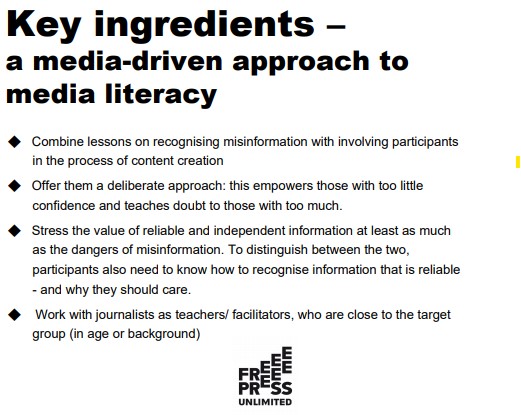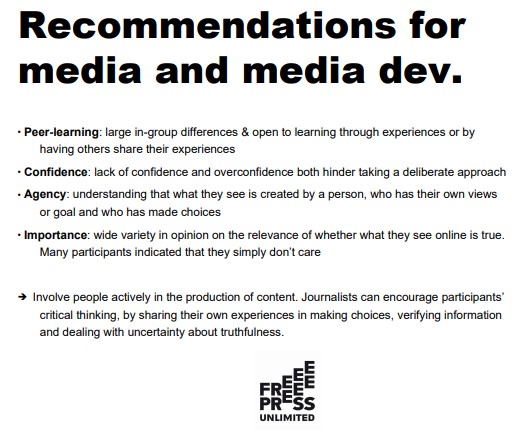By Tim Schoot Uiterkamp
Last summer, Free Press Unlimited published the result of one and a half years of research into the media literacy of teenagers in South Africa and Mexico. Since then, we have experimented with several pilots on how to effectively improve media literacy (including an understanding of the importance of reliable information). This has resulted in a method with proven effectiveness and a set of principles for a ‘media-driven approach to media literacy’.
Read further to learn more, or go directly to our approach
Research and pilots
The study, Keeping it Real, explored the different ways that 13 and 14 years old with different backgrounds engage with information that they encounter on social media, and the factors that affect whether they do so critically or not.
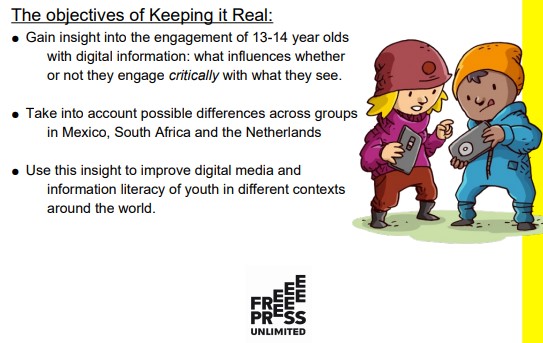
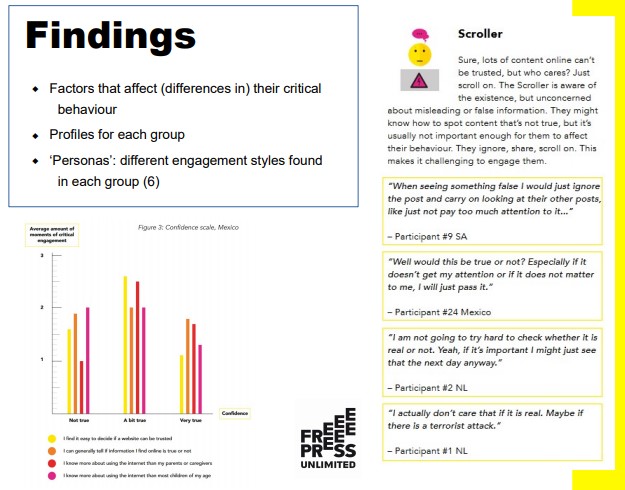
The report formulated recommendations based on the findings of this research, aimed at different groups of people: educators/ facilitators; reseachers; as well as media and media development organisations.
Based on those recommendations, we organised three pilot projects, in South Africa, DRC and Bangladesh, to test whether we could improve media literacy. This was measured with the help of an independent researcher and confirmed that our approach has been effective.
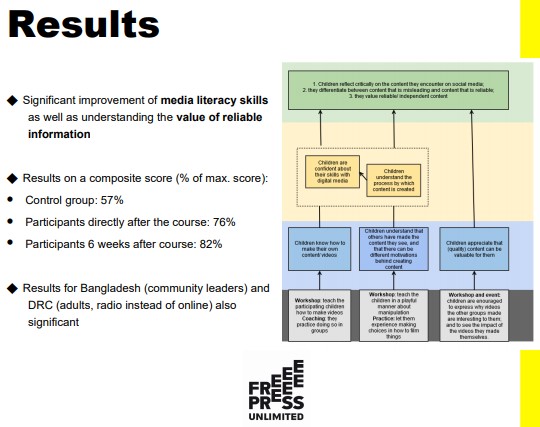
A media-driven approach to media literacy
Our approach consists of combining three types of activities:
- Involving the participants in the process of content creation, for instance by teaching them how to make and edit news videos with their mobile phones.
- Teaching them about manipulation and misinformation, by discussing the effects as well as showing them the choices that content producers make.
- Discuss the importance of reliable information for themselves, their peer group and society as a whole.
We have distilled four ‘key ingredients’ for an effective ‘media-driven appoach’, from the research and our experience with the pilots:
